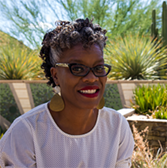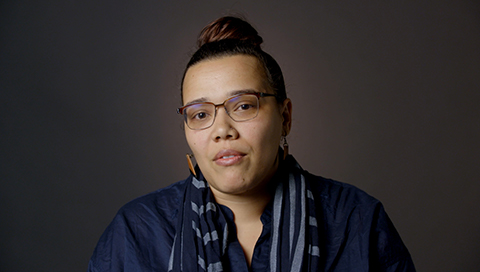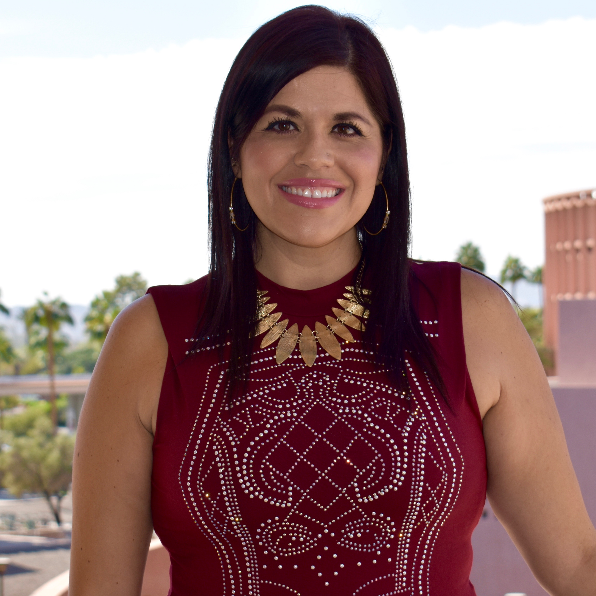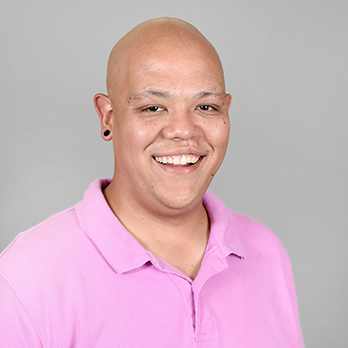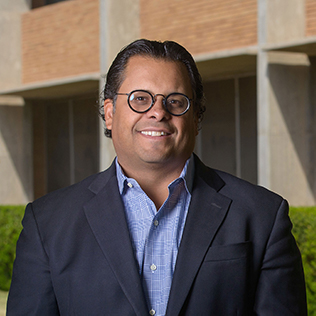About This Course
This To Be Welcoming course creates a baseline for discussions of race and racism. You will situate your understanding of issues of race and racism in the United States by exploring definitions, discussion points, and social context. We begin by defining the key terms on race you will see throughout the course, followed by a video module featuring faculty experts answering commonly asked questions. Next, we provide some context and examples of how to identify and deal with racial biases in personal, social, and educational settings. We conclude with points for starting your own discussions on American racial bias and considering appropriate responses.
Course Overview
Author Daniel H. Pink called empathy standing in someone else's shoes, feeling with their heart, and seeing with their eyes. Empathy requires us to understand how others' histories, relationships, and personal experiences shape their perception and how they are perceived. While civilizations have grappled with racial differences from the beginning of time and racism has become interwoven into their social fabrics, this doesn't mean that racial equity cannot be achieved. In order to work towards racial equity, this course encourages you to use empathy and dialogue to establish a shared understanding of humanity and dispel racial bias. Throughout this course, you will consider how debates in science, religion, nationalism, politics, and economics have shaped the definition of race in the United States. You will then consider the implications of race by exploring how racism has been used to justify economic, political, and social discrimination. As we learn to identify the many forms of racial discrimination, we recognize that differences deserve dignity. Recognizing oppression in action is a way to recognize the complexity of humanity. We hope that by identifying differences, discrimination, and oppression, you can apply the tools necessary to build a more inclusive society.
Throughout the course you should ask yourself:
- How can an understanding of racism and its impact be used to inspire social change and inclusion?
- How can we use race to understand differences in lived experiences instead of using it to create generalizations and assumptions about groups?
- How can we use civility, empathy, and compassion to work towards recognizing equal human dignity?
The foundational course introduced you to the roles that civility, empathy and dialogue play in understanding and addressing biases. You were also introduced to the bias quadrant to help you identify manifestations of individual, systemic, conscious, and unconscious bias. In this course, you will use these tools as you listen to experts and engage with key issues that impact people from different racial groups in the United States. You will then begin to apply civility, empathy, and dialogue to deepen your understanding of some of the issues people from different races face.
Learners who complete this course will earn a digital certificate of completion.
Requirements
English proficiency
Prior to taking this course, it is highly recommended that you complete TBW100, To Be Welcoming: Foundational Course. This course will provide you with the context and vocabulary necessary to make the most out of this course.
Meet Your Instructors
Dr. Ersula J. Ore
Lincoln Professor of Ethics
Assistant Professor
School of Social Transformation
Arizona State University
Dr. Ersula J. Ore is the Lincoln Professor of Ethics in the School of Social Transformation and Associate professor of African and African American studies. Her research explores the suasive strategies of Black Americans as they operate within a post-emancipation historical context, and gives particular attention to the ways physical and discursive violence influences performances of citizenship. Dr. Ore is a 2013 Institute for Humanities Research Fellow at ASU, and recipient of the 2018-2019 Outstanding Mentor Award for the College of Global Health. Her book Lynching: Violence, Rhetoric, and American Identity (2019), which explores American lynching as an ongoing practice of racialized citizenship, received the 2020 Book Award from the Rhetoric Society of America.
Dr. Keon M. McGuire
Associate Professor
Mary Lou Fulton Teacher's College
Arizona State University
Dr. Keon M. McGuire is an Associate Professor of Higher and Postsecondary Education in the Mary Lou Fulton Teachers College and a Faculty Affiliate with the School of Social Transformation. Dr. McGuire's research agenda focuses on the status and experiences of minoritized students across postsecondary educational settings. Drawing from Africana and other interdisciplinary frameworks, Dr. McGuire examines how race, gender and religion shape minoritized college students’ identities and their everyday experiences. Additionally, Dr. McGuire investigates the ways racism, sexism, and heteronormativity undermine the experiences of minoritized college students as well as they ways students resist and respond to such marginalization. In 2019, he was named a National Academy of Education (NAEd)/Spencer Postdoctoral Fellow and ACPA Emerging Scholar.
Dr. Jessica Solyom
Associate Research Professor
School of Social Transformation
Arizona State University
Jessica Solyom, Ph.D., received her doctorate in Justice and Social Inquiry from Arizona State University. She has worked in research, program development, and program evaluation for postsecondary institutions in promoting diversity in curriculum, pedagogy, and classroom management for over 10 years. Her research focuses on diversity, belonging, and justice. Her scholarly publications have explored the justice-related struggles of historically underrepresented students including explorations of race and gender in student leadership, persistence for students of color in predominantly white postsecondary settings, and education rights activism among Indigenous college students. She is currently an Associate Research Professor and teaches courses on Research and Inquiry, Critical Race Theory, and Indigenous Knowledge Systems. Dr. Solyom serves as a mentor at the Center for Indian Education (ASU) in preparing and training rising students of color as community embedded researchers and servant-leaders.
Jeremiah Chin, J.D. Ph.D.
Postdoctoral Research Fellow
Center for Indian Education
Arizona State University
Jeremiah Chin, J.D. Ph.D., graduated from Arizona State University in 2016 with a JD from the Sandra Day O’Connor College of Law and a PhD from Justice and Social Inquiry in the School of Social Transformation. His research focuses on the intersections of race, law, and science—particularly in the Supreme Court. His dissertation looked at the role of social science data in Supreme Court opinions on Affirmative Action and Fair Housing, uncovering the interplay between Amicus Briefs, data and opinions of the Court. Currently, he is a postdoctoral research fellow at the Center for Indian Education, with research looking at the School to Prison Pipeline, the intersection of Race and Indigeneity, and importantly, co-creating a Critical Legal Preparation Program that would seek to create a pipeline to law school for underrepresented and first-generation students.
Nicholas Bustamante
J.D./Ph.D. Student
Sandra Day O’Connor College of Law
School of Social Transformation
Nicholas is a current joint law and doctoral student in Justice and Social Inquiry at Arizona State University. He has worked in research focused on the school to prison pipeline in Arizona for Native, Latino, and African American Students. In 2017-2018 he co-developed a critical legal studies program for first generation students interested in a legal career. Scholarly publications have focused on critical race theory, education, ethnic studies and Indigeneity. His doctoral research focuses on surveillance technologies and privacy rights for communities in the southwestern borderlands. Nicholas also volunteers at local immigration initiatives.
Dr. Bryan McKinley Jones Brayboy
Special Advisor to the President on American Indian Affairs
President’s Professor
School of Social Transformation
Director, Center for Indian Education
Arizona State University
Bryan is President’s Professor in the School of Social Transformation at Arizona State University. He is the author of over 90 scholarly products. His research focuses on the role of race and diversity in higher education, and the experiences of Indigenous students, staff, and faculty in institutions of higher education.
Frequently Asked Questions
What web browser should I use?
The Open edX platform works best with current versions of Chrome, Firefox or Safari, or with Internet Explorer version 9 and above.
See our list of supported browsers for the most up-to-date information.
